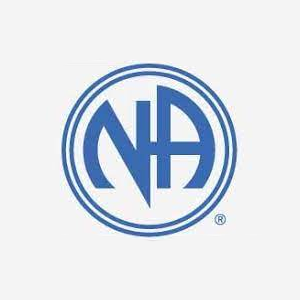Drug & Alcohol Rehab in County Durham

How Does Rehab Work?
Rehabilitation is a process that assists individuals in working towards restoring balance and well-being. Rehab is designed for addressing the patient holistically with individual therapy aimed at resolving addictive behaviours. With guidance from a professional therapist or counsellor, coping strategies are taught and individuals can access much-needed support. Strategies deal with relapse prevention and clients can be assigned to an extended inpatient programme or move to an outpatient programme. With inpatient rehab (residential rehab), individuals will live at the rehab centre for the duration of treatment. Outpatient services are an alternative option in which clients will attend daily/weekly sessions for therapy but will not attend a full-time programme. There are both free and paid outpatient services available within the UK.
What Happens During Residential Rehab?
When you are ready to enter rehab for drug and/or alcohol addiction, it is a brave step towards recovery. Although achieving balance and breaking the cycle of addiction takes some effort, it can be achieved. To help you make an informed decision regarding rehab, we look at the options available and what to expect during rehab.
Prior to entering treatment, every individual will be assessed by a medical professional. The aim is to create a treatment plan suited to individual health and wellness needs. This is particularly important for those with a history of addiction and comorbid mental conditions including depression, anxiety or bipolar disorder.
An assessment is followed by detox. Detox is a formal process and is performed within residential rehab or at home with guidance from a medical professional (outpatient services). During this phase, individuals abstain from drugs and/or alcohol use until the drug/alcohol is no longer present in the system. Because of the challenges associated with withdrawal, a medically supervised detox from drugs and alcohol is recommended.
Therapy is an important part of rehab and every aspect of addiction treatment should be tailored to address individual backgrounds, addictions, and circumstances. Interventions can range from private counselling and cognitive behavioural therapy to developing coping mechanisms, skills, and attending group meetings.
1. Assessment

To acquire the best treatment to suit your needs, an assessment is definitely the phase in the recovery process. Assessments are performed with a medical professional and will include a telephone screening. The professional asks questions concerning your state of health, your substance use, any history of addiction, and whether you might have any comorbid mental health problems. A phone assessment gives staff important information that will help to safely manage the detox process.
Should you require the assistance of a medical professional to manage addiction, seek a medical assessment prior to treatment commencing. Assessments are an important part of choosing the right therapy and whether inpatient or outpatient programmes are most suitable for your healthcare needs.
2. Detox

Detox involves the cessation of drugs and alcohol from the body. With professional care, it is safely facilitated and is most commonly monitored in a residential rehab because of risks associated with withdrawal.
Medical detox is often recommended because it allows medical staff to oversee withdrawal symptoms that may develop. Withdrawal from drugs or alcohol can be uncomfortable and relapse may occur if not managed within a treatment centre facility. Medically assisted detox can ease the process of withdrawal by supporting clients and providing detox medication to reduce withdrawal symptoms. During an individual assessment, a professional will determine which approach is best suited to a comfortable detox and entry into treatment thereafter.
3. Therapy

Therapy involves skill-building, coping strategies, and the exploration of the reasons behind addiction. It can be delivered within an inpatient or an outpatient plan, each offering its benefit and potential drawbacks.
Step by Step Process for Residential Rehab
To understand your medical and mental health history.
Arrange a suitable date to begin your journey to recovery.
Begin the managed withdrawal process from substances including alcohol.
To understand the root cause of addiction and how to overcome it.
Aftercare is provided to help manage the risk of relapse.
To help heal the wounds that addictive behaviour has caused others.
Find your Nearest Rehab Centre in County Durham
The nearest rehab centre is Addaction.
Address: Addaction, 88 Whinney Hill, Durham DH1 3BQ
Call 0333 4444 432 to discuss your alcohol or drug rehab requirements and any other questions you may have about the process of residential rehab.
Outpatient Addiction Services in County Durham
From inpatient to outpatient services, the necessary treatment for substance dependence will depend upon the assessment and budget to determine the appropriate treatment for your needs. If you are interested in the flexibility and the affordability of outpatient addiction services, we take a closer look at what it entails compared with an inpatient programme.
An outpatient service does not require individuals to stay at the centre for treatment. If you have work, family, or other commitments, outpatient services allow you to focus on these commitments while visiting a clinic or counsellor to receive addiction therapy and other support services.
PrivateOutpatient care involves individual counselling with a therapist. You are required to travel to the therapist which involves hour-long treatment sessions. Apart from private therapy, you can also find free services from charities and government-driven organisations that address drug and alcohol dependencies.
The Benefits of Outpatient Services
Private Outpatient programmes focus on individual support that is tailored to suit the interests of those struggling with addiction. – Outpatient treatment is a more flexible arrangement that can aid many struggling with addiction, regardless of financial or personal commitments. It involves the attendance of weekly sessions that are delivered by a qualified counsellor. – It is a more cost-effective treatment programme compared to residential services.
The Challenges of Outpatient Services
While outpatient plays an important role in accessible addiction treatment, it is also associated with a higher incidence of relapse. While free outpatient services do exist through the NHS or UK-based charities, waiting times are to be expected and treatment tends to be more generic.

How Much Does Rehab Services Cost in County Durham?
Alcohol and drug rehab within a residential setting can cost between £1500 – £4000 a week. Residential rehabilitation is one of the more expensive types of treatment for drug and alcohol addiction. For free and affordable services, charity organisations and government-funded services offer care programmes for all individuals seeking help with alcohol or drug addiction.
One example of a free addiction treatment service is that provided by Turning Point. Turning Point offers a number of structured support programmes to deal with both drug and alcohol addictions. Their website provides a self-referral service. Apart from charities such as Turning Point, you may consider private counselling or one of the many free support groups such as Narcotics Anonymous (NA), Cocaine Anonymous (CA), and Alcoholics Anonymous.
Support Groups in County Durham

Durham
Shakespeare Hall, North Rd DH1 4SQ

Durham
Shakespeare Hall, North Rd DH1 4SQ

Main Share Group
United Reform Church Waddington Street Durham Durham DH1 4BG
The Pros and Cons of Seeking Treatment in Your Local Area
Pros
1. You are familiar with the area which may provide a layer of comfort/safety.
2. Loved ones can easily travel to visit or are close by.
3. You could save on the costs of travelling long distances for addiction treatment, or free services may only be offered in your home town.
Cons
1. A local environment means access to drug dealers or other triggers. This is more of a concern if you opt for outpatient programmes.
2. Not considering locations outside your area could equate to a missed opportunities for more valuable and rewarding programmes.
3. Addiction treatment services that are nearby don’t always offer the best standard of treatment.
The CQC website will provide information and ratings on a service in the event you are unsure regarding a particular service.

